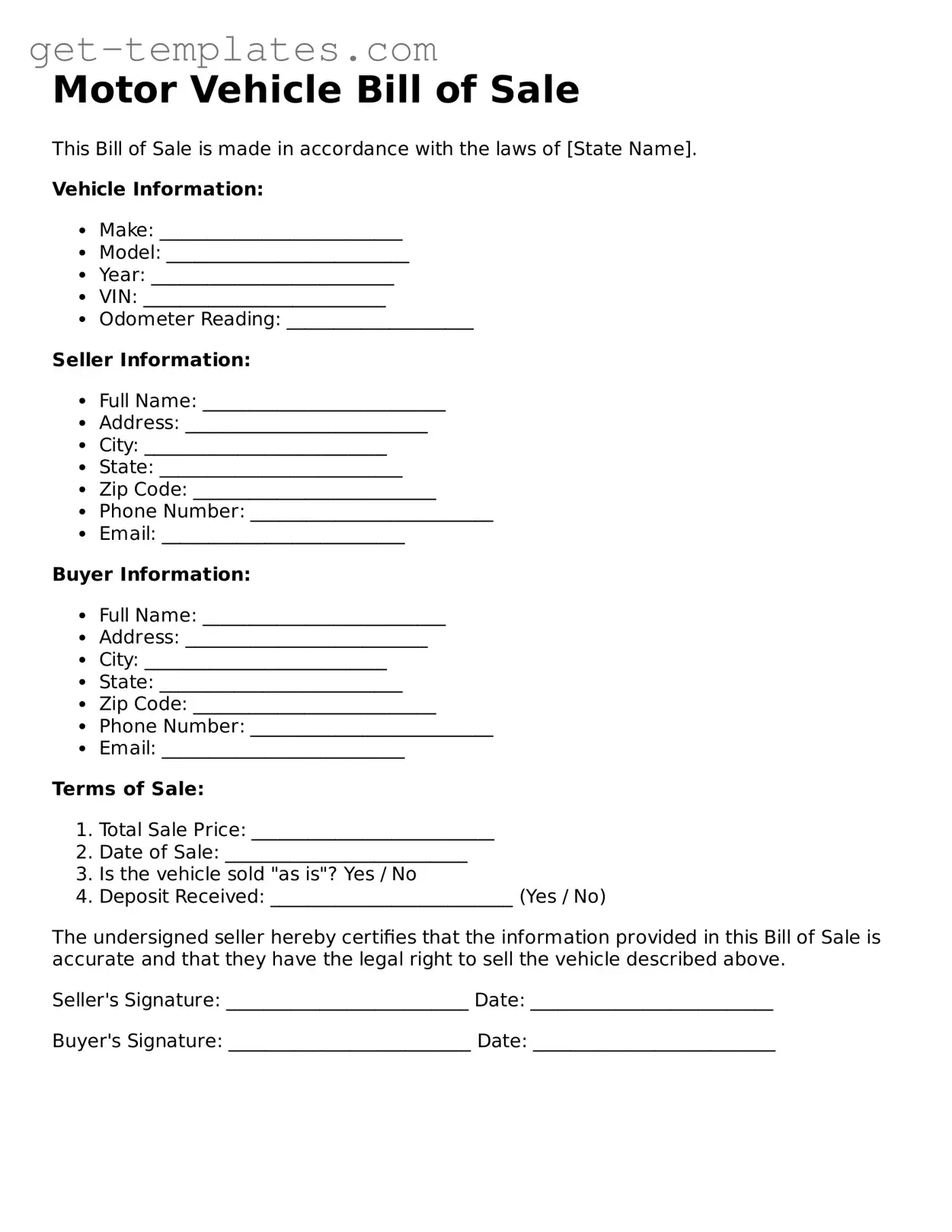Motor Vehicle Bill of Sale
This Bill of Sale is made in accordance with the laws of [State Name].
Vehicle Information:
- Make: __________________________
- Model: __________________________
- Year: __________________________
- VIN: __________________________
- Odometer Reading: ____________________
Seller Information:
- Full Name: __________________________
- Address: __________________________
- City: __________________________
- State: __________________________
- Zip Code: __________________________
- Phone Number: __________________________
- Email: __________________________
Buyer Information:
- Full Name: __________________________
- Address: __________________________
- City: __________________________
- State: __________________________
- Zip Code: __________________________
- Phone Number: __________________________
- Email: __________________________
Terms of Sale:
- Total Sale Price: __________________________
- Date of Sale: __________________________
- Is the vehicle sold "as is"? Yes / No
- Deposit Received: __________________________ (Yes / No)
The undersigned seller hereby certifies that the information provided in this Bill of Sale is accurate and that they have the legal right to sell the vehicle described above.
Seller's Signature: __________________________ Date: __________________________
Buyer's Signature: __________________________ Date: __________________________
